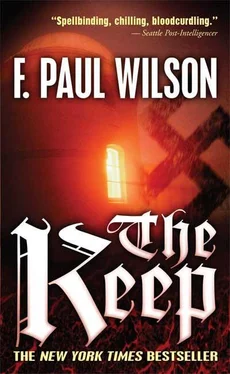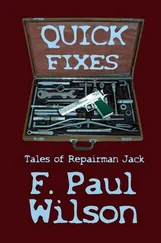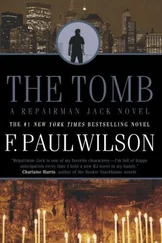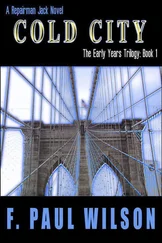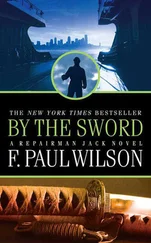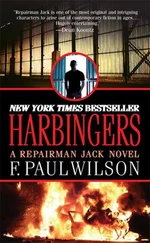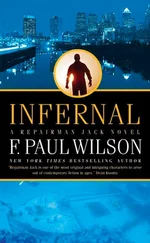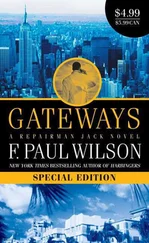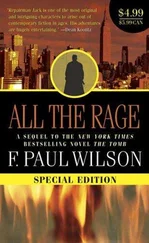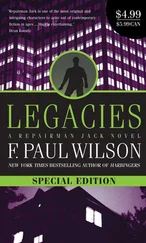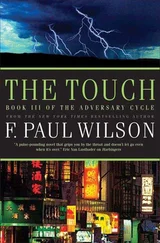F. Paul Wilson - The Keep
Здесь есть возможность читать онлайн «F. Paul Wilson - The Keep» весь текст электронной книги совершенно бесплатно (целиком полную версию без сокращений). В некоторых случаях можно слушать аудио, скачать через торрент в формате fb2 и присутствует краткое содержание. Жанр: Ужасы и Мистика, на английском языке. Описание произведения, (предисловие) а так же отзывы посетителей доступны на портале библиотеки ЛибКат.
- Название:The Keep
- Автор:
- Жанр:
- Год:неизвестен
- ISBN:нет данных
- Рейтинг книги:3 / 5. Голосов: 1
-
Избранное:Добавить в избранное
- Отзывы:
-
Ваша оценка:
- 60
- 1
- 2
- 3
- 4
- 5
The Keep: краткое содержание, описание и аннотация
Предлагаем к чтению аннотацию, описание, краткое содержание или предисловие (зависит от того, что написал сам автор книги «The Keep»). Если вы не нашли необходимую информацию о книге — напишите в комментариях, мы постараемся отыскать её.
The Keep — читать онлайн бесплатно полную книгу (весь текст) целиком
Ниже представлен текст книги, разбитый по страницам. Система сохранения места последней прочитанной страницы, позволяет с удобством читать онлайн бесплатно книгу «The Keep», без необходимости каждый раз заново искать на чём Вы остановились. Поставьте закладку, и сможете в любой момент перейти на страницу, на которой закончили чтение.
Интервал:
Закладка:
He lifted his gaze to the tiny village, transected by the sunlight pouring over the mountaintops—its upper half aglow, its lower half still in shadow. And he knew he would have to paint the village just as he saw it now. He stepped back: The village, framed in the drab gray of the wall, shone like a jewel. That would be it ... the village seen through the window in the wall. The contrasts appealed to him. He had an urge to set up a canvas and start immediately. He painted best under stress and most loved to paint then, losing himself in perspective and composition, light and shadow, tint and texture.
The rest of the day went quickly. Woermann oversaw the placement of Lutz's body in the subcellar. It and the severed head were carried down through the opening in the cellar floor and covered with a sheet on the dirt floor of the cavern below. The temperature down there felt close to freezing. There was no sign of vermin about and it seemed the best place to store the cadaver until later in the week when arrangements could be made for shipment home.
Under normal circumstances, Woermann would have been tempted to explore the subcellar—the subterranean cavern with its glistening walls and inky recesses might have sparked an interesting painting. But not this time. He told himself it was too cold, that he would wait until summer and do a proper job of it. But that wasn't true. Something about this cavern urged him to be gone from it as soon as possible.
It became apparent as the day progressed that Grunstadt was going to be a problem. There was no sign of improvement. He lay in whatever position he was placed and stared into space. Every so often he would shudder and moan; occasionally, he would howl at the top of his lungs. He soiled himself again. At this rate, with no intake of food or fluid and without skilled nursing care, he would not survive the week. Grunstadt would have to be shipped out with Lutz's remains if he didn't snap out of it.
Woermann kept close watch on the mood of the men during the day and was satisfied with their response to the physical tasks he set for them. They worked well despite their lack of sleep and despite Lutz's death. They had all known Lutz, known what a schemer and a plotter he was, that he rarely carried his full share of the load. It seemed to be the consensus that he had brought on the very accident that had killed him.
Woermann saw to it that there was no time for mourning or brooding, even for those few so inclined. A latrine system had to be organized, lumber commandeered from the village, tables and chairs made. By the time the evening mess was cleared, there were few in the detachment willing to stay up for even an after-dinner cigarette. To a man, except for those on watch, they headed for their bedrolls.
Woermann allowed an alteration in the watch so that the courtyard guard would cover the corridor that led to Grunstadt's room. Because of his cries and moans, no one would spend the night within a hundred feet of him; but Otto had always been well liked by the men and they felt an obligation to see that he did himself no harm.
Near midnight, Woermann found himself still wide awake despite a desperate desire to sleep. With the dark had come a sense of foreboding that refused to let him relax. He finally gave in to a restless urge to be up and about and decided to tour the guard posts to be sure those on sentry duty were awake.
His tour took him down Grunstadt's corridor and he decided to look in on him. He tried to imagine what could have driven the man into himself like that. He peeked through the door. A kerosene lamp had been left burning with a low flame in a far corner of the room. The private was in one of his quiet phases, breathing rapidly, sweating and whimpering. The whimpering was followed regularly by a prolonged howl. Woermann wanted to be far down the hall when that occurred. It was unnerving to hear a human voice make a sound like that... the voice so near and the mind so far away.
He was at the end of the corridor and about to step into the courtyard again when it came. Only this wasn't like the others. This was a shriek, as if Grunstadt had suddenly awakened and found himself on fire, or pierced by a thousand knives—there was physical as well as emotional agony in the sound this time. And then it cut off, like pulling the plug on a radio in mid-song.
Woermann froze for an instant, his nerves and muscles unwilling to respond to his commands; with intense effort he forced himself to turn and run back down the corridor. He burst into the room. It was cold, colder than a minute ago, and the kerosene lamp was out. He fumbled for a match to relight it, then turned to Grunstadt.
Dead. The man's eyes were open, bulging toward the ceiling; the mouth was agape, the lips drawn back over the teeth as if frozen in the middle of a scream of horror. And his neck—the throat had been ripped open. There was blood all over the bed and splattered on the walls.
Woermann's reflexes took over. Before he even knew what he was doing, his hand had clawed his Luger from its holster and his eyes were searching the corners of the room for whoever had done this. But he could see no one. He ran to the narrow window, stuck his head through, and looked up and down the walls. There was no rope, no sign of anyone making an escape. He jerked his head back into the room and looked around again. Impossible! No one had come down the corridor, and no one had gone out the window. And yet Grunstadt had been murdered.
The sound of running feet cut off further thought—the guards had heard the shriek and were coming to investigate. Good ... Woermann had to admit to himself that he was terrified. He couldn't bear to be alone in this room much longer.
Thursday, 24 April
After seeing to it that Grunstadt's body was placed next to Lutz's, Woermann made sure the men were again kept busy all day building cots and tables. He fostered the belief that there was an anti-German partisan group at work in the area. But he found it impossible to convince himself; for he had been on the corridor when the murder had occurred and knew there was no way the killer could have got by him without being seen—unless he could fly or walk through walls. So what was the answer?
He announced that the sentries would be doubled tonight, with extra men posted in and around the barracks to safeguard those who were sleeping.
With the sound of insistent hammering rising from the courtyard below, Woermann took time out in the afternoon to set up one of his canvases. He began to paint. He had to do something to get that awful look on Grunstadt's face out of his mind; it helped to concentrate on mixing his pigments until their color approximated that of the wall in his room. He decided to place the window to the right of center, then spent the better part of two hours in the late afternoon blending the paint and smoothing it onto the canvas, leaving a white area for the village as seen through the window.
That night he slept. After interrupted slumber the first night, and none on the second, his exhausted body fairly collapsed onto his bedroll.
Private Rudy Schreck walked his patrol cautiously and diligently, keeping an eye on Wehner on the far side of the courtyard. Earlier in the evening, two men for this tiny area had seemed a bit much, but as darkness had grown and consolidated its hold on the keep, Schreck found himself glad to have someone within earshot. He and Wehner had worked out a routine: Both would walk the perimeter of the courtyard within an arm's length of the wall, both going clockwise at opposite sides. It kept them always apart, but it meant better surveillance.
Rudy Schreck was not afraid for his life. Uneasy, yes, but not afraid. He was awake, alert; he had a rapid-fire weapon slung over his shoulder and knew how to use it—whoever had killed Otto last night was not going to have a chance against him. Still, he wished for more light in the courtyard. The scattered bulbs spilling stark pools of brightness here and there along the periphery did nothing to dispel the overall gloom. The two rear corners of the courtyard were especially dark wells of blackness.
Читать дальшеИнтервал:
Закладка:
Похожие книги на «The Keep»
Представляем Вашему вниманию похожие книги на «The Keep» списком для выбора. Мы отобрали схожую по названию и смыслу литературу в надежде предоставить читателям больше вариантов отыскать новые, интересные, ещё непрочитанные произведения.
Обсуждение, отзывы о книге «The Keep» и просто собственные мнения читателей. Оставьте ваши комментарии, напишите, что Вы думаете о произведении, его смысле или главных героях. Укажите что конкретно понравилось, а что нет, и почему Вы так считаете.
